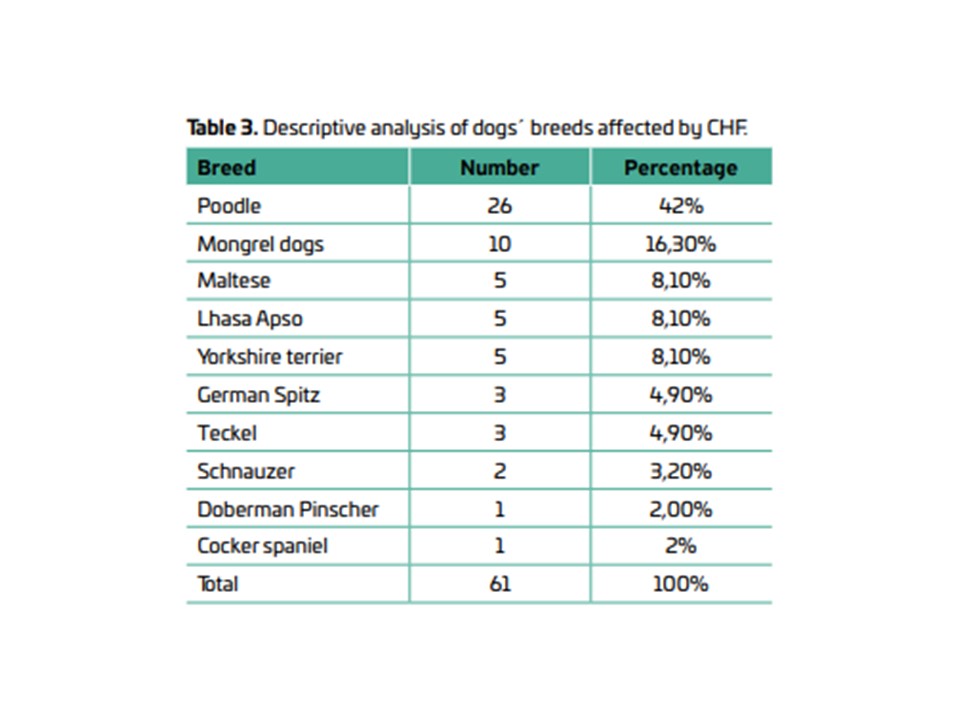Main risk factors of dogs with congestive heart failure diagnosed by doppler echocardiographic parameters
DOI:
https://doi.org/10.21708/avb.2022.16.2.10648Abstract
Nowadays, congestive heart failure is one of the major complications of heart disease in small animals, which is characterized by a clinical condition in which the heart is unable to eject the blood efficiently. At long term, some compensatory mechanisms it will eventually become detrimental and, mainly, due to the congestion caused by it. In dogs, the main cause of CHF is chronic mitral valve degeneration, it is responsible for the degeneration of collagen present in the mitral valve structure that will have detrimental consequences on the entire circulatory system. The aim of the present study was to perform a retrospective study of 498 echocardiographic reports collected at a veterinary cardiology service of the Bauru region, from January 2017 to June 2019. Two groups were formed according to the Doppler echocardiographic alterations found, one that included animals with characteristics of congestive heart failure (CHF), and the other formed by non-CHF patients. Of the total number of animals evaluated, 61 were classified as affected by congestive heart failure and after classification, it was considered the main epidemiological factors (race, sex and age) of animals belonging to this group. Small breed animals were overrepresented and also elderly animals, with no apparent sexual predisposition. In addition, animals with CHF presented higher values when compared to animals without CHF of LA/Ao ratio (2.31 ± 0.30 vs. 1.46 ± 0.35), E/IRTV ratio (2.96 ± 0.39 vs. 1.16 ± 0.43) and E-wave velocity (1.45 m/s ± 0.18 vs. 0.75 m/s ± 0.22) on echocardiographic examination.
Downloads

Downloads
Pubblicato
Fascicolo
Sezione
Licenza
Copyright (c) 2022 Acta Veterinaria Brasilica

TQuesto lavoro è fornito con la licenza Creative Commons Attribuzione 4.0 Internazionale.
Autores que publicam na Acta Veterinaria Brasilica concordam com os seguintes termos: a) Autores mantém os direitos autorais e concedem à revista o direito de primeira publicação, com o trabalho simultaneamente licenciado sob a Licença Creative Commons Attribution que permite o compartilhamento do trabalho com reconhecimento da autoria e publicação inicial nesta revista. b) Autores têm autorização para assumir contratos adicionais separadamente, para distribuição não-exclusiva da versão do trabalho publicada nesta revista (ex.: publicar em repositório institucional ou como capítulo de livro), com reconhecimento de autoria e publicação inicial nesta revista. c) Autores têm permissão e são estimulados a publicar e distribuir seu trabalho online (ex.: em repositórios institucionais ou na sua página pessoal) a qualquer ponto antes ou durante o processo editorial, já que isso pode gerar alterações produtivas, bem como aumentar o impacto e a citação do trabalho publicado (Veja O Efeito do Acesso Livre).


 Esta obra está licenciada com uma Licença
Esta obra está licenciada com uma Licença 